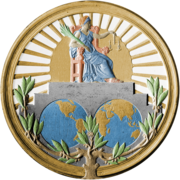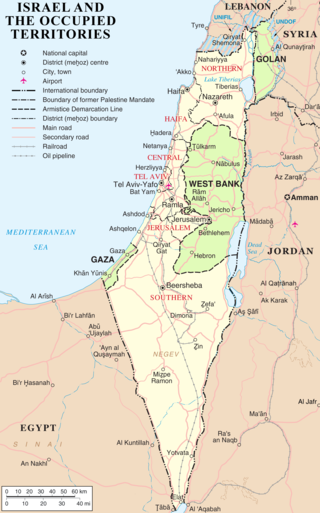| Legal Consequences arising from the Policies and Practices of Israel in the Occupied Palestinian Territory, including East Jerusalem | |
|---|---|
 | |
| Court | International Court of Justice |
| Full case name | Legal Consequences arising from the Policies and Practices of Israel in the Occupied Palestinian Territory, including East Jerusalem (Request for Advisory Opinion) |
| Started | 2023 |
| Keywords | |
Legal Consequences arising from the Policies and Practices of Israel in the Occupied Palestinian Territory, including East Jerusalem (Request for Advisory Opinion) is a proceeding in the International Court of Justice (ICJ), stemming from a resolution adopted by the United Nations General Assembly (UNGA) in December 2022, requesting the Court to render an advisory opinion. In January 2023, the ICJ acknowledged a request from the UNGA for an advisory opinion on the legal consequences arising from the policies and practices of Israel in the occupied Palestinian territory, including East Jerusalem. [1] [2] Public hearings opened on Monday, 19 February 2024 in The Hague [3] [4] with 52 states and three international organizations participating. [5] [6]
Contents
- Background
- The UNGA resolution
- UN’s Special Political and Decolonization Committee vote
- General Assembly vote
- Reactions to the UNGA resolution
- Submissions to the Court
- Canada
- France
- Israel
- Palestine
- United Kingdom
- Oral presentations
- Africa
- Americas
- Asia
- Europe
- Middle East
- Reactions
- See also
- References
- External links










